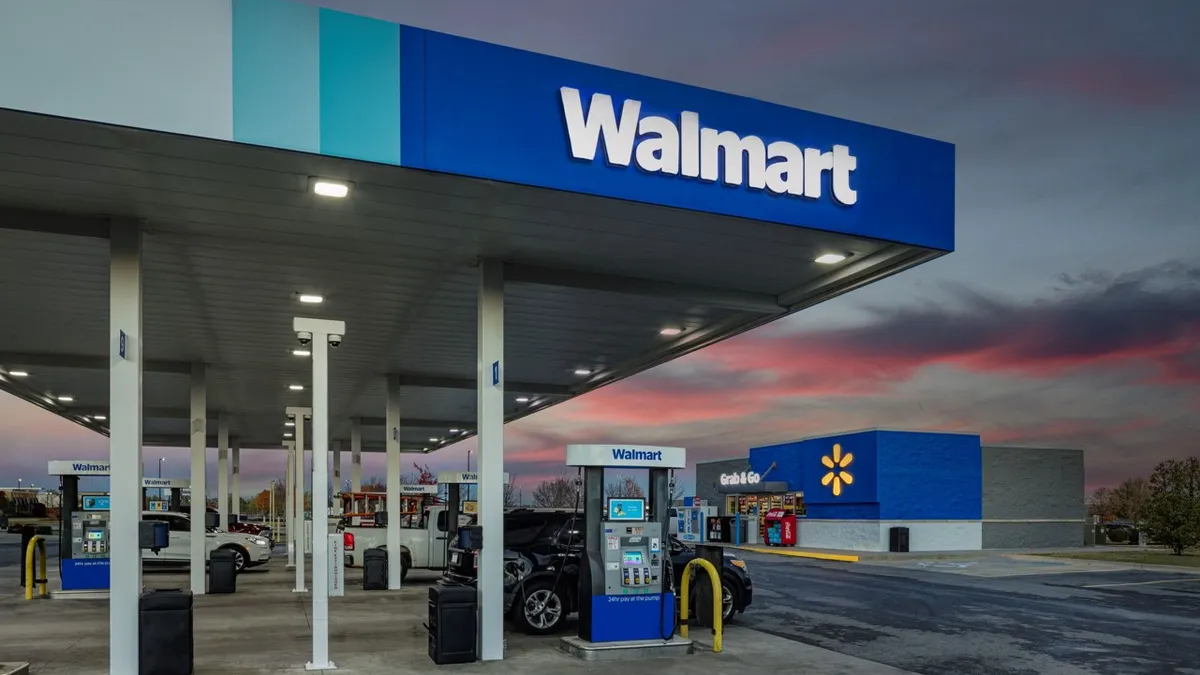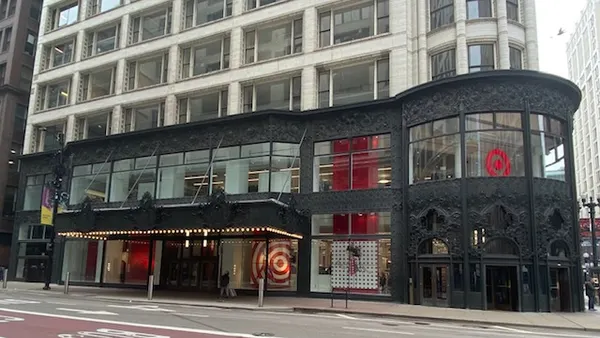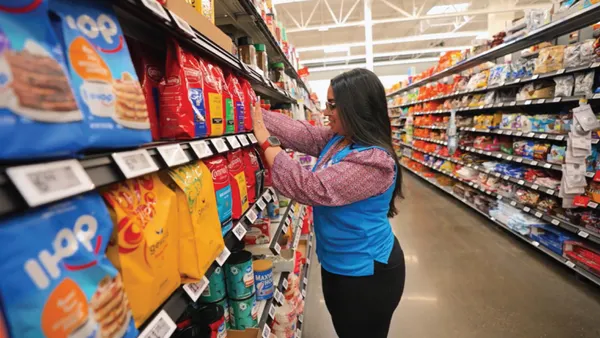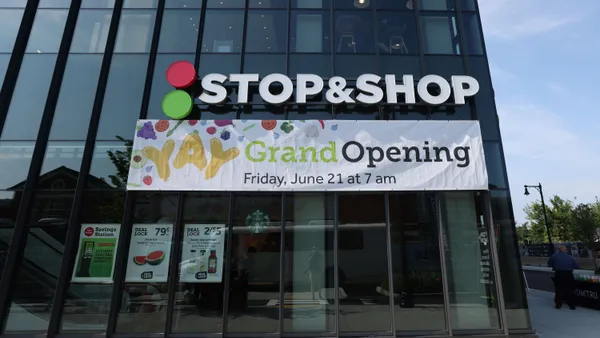Dive Brief:
- Lucky's Market filed for Chapter 11 bankruptcy protection in Delaware on Monday, just days after it confirmed it would sell 32 of its 39 stores.
- Lucky's said it has entered into agreements to sell five leased stores to Publix and five leased stores and one owned location to Aldi, both subject to court approval and an overbidding process. The company also said it aims to sell off its seven remaining stores.
- In a court declaration, chief financial officer Andrew T. Pillari said that through the fiscal year to date ended Jan. 4, Lucky's incurred store operating losses of $22 million and a net loss of $100 million. The company determined it would need $100 million in financing to continue operations and become cash-flow positive, and ultimately decided it would not be able to secure those funds outside of Chapter 11.
Dive Insight:
In the court declaration, Pillari said Lucky's sales grew from fiscal 2016 to 2017, around the time Kroger made its investment in the company. But Lucky's rapid expansion in Florida came as competitors Sprouts Farmers Market, The Fresh Market and Earth Fare were also growing in the state, significantly impacting Lucky's profitability.
For the fiscal year ended Jan. 18, Lucky's saw a 10.6% reduction in same store sales.
According to Monday's filing, Kroger was a secured lender and had a 55% stake in Lucky's main financial holding. The larger chain's investment was critical to keeping Lucky's afloat, but it was unable to help generate a profit, leading the Cincinnati-based grocer to pull out of its investment last month and incur a $131 million impairment charge.
Lucky's listed liabilities of $600 million. It's largest creditor is United Natural Foods, Inc., with an unsecured claim of more than $13 million. Lucky's also owes $2.1 million to Sherwood Food Distributors, according to the filing, and $1.68 million to Caito Foods Service.
In its statement, Lucky's said it expects to be able to finance operations and pay employees at its seven remaining stores while it works out a sale of those locations and a financing arrangement under bankruptcy protection. The company said it has begun running sales in its 32 stores set to close in order to offload inventory.
Aldi's purchase agreement to buy six stores underscores the chain's growth drive and the flexible approach discounters are taking to expansion. Aldi's stores average around 16,000 square feet, which is a little more than half the size of Lucky's stores. But the discount chain has at least one store in its pipeline that's 25,000-square feet.
Publix, meanwhile, has been steadily opening its smaller-format Greenwise stores, which like Lucky's centers on specialty products and prepared foods. Publix opened two locations in Florida last month and currently operates four Greenwise stores and has announced 12 more. A spokeswoman for the chain confirmed to the Orlando Business Journal that it has agreed to buy five locations and is "currently in the due diligence process."
Specialty competitors like Earth Fare and Sprouts Farmers Market have also been raised as possibilities to take over Lucky's stores in Florida, though Cindy Schooler, senior vice president with SRS Real Estate Partners in Tampa, recently told Grocery Dive those chains may want to temper their growth in the state following a rapid build-out period.
PJ Solomon is advising Lucky's on the sale of its assets and says it is in contact with other potential buyers in addition to Publix and Aldi. Polsinelli is the chain's legal advisor.
In interviews with Grocery Dive, sources painted Lucky's as a chain with a compelling store model but a flawed expansion plan. In addition to expanding in Florida at the same time as its close competitors, the company operated just one or two locations in several states, making brand awareness and distribution efficiencies hard to achieve.














